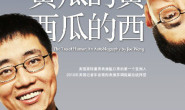
内容简介
Known for its lively, clear prose as well as its scholarly research, A People’s History of the United States is the only volume to tell America’s story from the point of view of — and in the words of — America’s women, factory workers, African-Americans, Native Americans, working poor, and immigrant laborers.
This P.S. edition features an extra 16 pages of insights into the book, including author interviews, recommended reading, and more.
Consistently lauded for its lively, readable prose, this revised and updated edition of A People’s History of the United States turns traditional textbook history on its head. Howard Zinn infuses the often-submerged voices of blacks, women, American Indians, war resisters, and poor laborers of all nationalities into this thorough narrative that spans American history from Christopher Columbus’s arrival to an afterword on the Clinton presidency.
Addressing his trademark reversals of perspective, Zinn–a teacher, historian, and social activist for more than 20 years–explains, “My point is not that we must, in telling history, accuse, judge, condemn Columbus in absentia. It is too late for that; it would be a useless scholarly exercise in morality. But the easy acceptance of atrocities as a deplorable but necessary price to pay for progress (Hiroshima and Vietnam, to save Western civilization; Kronstadt and Hungary, to save socialism; nuclear proliferation, to save us all)–that is still with us. One reason these atrocities are still with us is that we have learned to bury them in a mass of other facts, as radioactive wastes are buried in containers in the earth.”
If your last experience of American history was brought to you by junior high school textbooks–or even if you’re a specialist–get ready for the other side of stories you may not even have heard. With its vivid descriptions of rarely noted events, A People’s History of the United States is required reading for anyone who wants to take a fresh look at the rich, rocky history of America.
According to this classic of revisionist American history, narratives of national unity and progress are a smoke screen disguising the ceaseless conflict between elites and the masses whom they oppress and exploit. Historian Zinn sides with the latter group in chronicling Indians’ struggle against Europeans, blacks’ struggle against racism, women’s struggle against patriarchy, and workers’ struggle against capitalists. First published in 1980, the volume sums up decades of post-war scholarship into a definitive statement of leftist, multicultural, anti-imperialist historiography. This edition updates that project with new chapters on the Clinton and Bush presidencies, which deplore Clinton’s pro-business agenda, celebrate the 1999 Seattle anti-globalization protests and apologize for previous editions’ slighting of the struggles of Latinos and gays. Zinn’s work is an vital corrective to triumphalist accounts, but his uncompromising radicalism shades, at times, into cynicism. Zinn views the Bill of Rights, universal suffrage, affirmative action and collective bargaining not as fundamental (albeit imperfect) extensions of freedom, but as tactical concessions by monied elites to defuse and contain more revolutionary impulses; voting, in fact, is but the most insidious of the “controls.” It’s too bad that Zinn dismisses two centuries of talk about “patriotism, democracy, national interest” as mere “slogans” and “pretense,” because the history he recounts is in large part the effort of downtrodden people to claim these ideals for their own.
length: (cm)20.9 width:(cm)16
Howard Zinn was a historian, playwright, and social activist. He was a shipyard worker and a bombardier with the U.S. Army Air Force in Europe during the Second World War before he went to college under the GI Bill and received his Ph.D. from Columbia University.
Zinn taught at Spelman College and Boston University, and was a visiting professor at the University of Paris and th…
(展开全部)
Howard Zinn was a historian, playwright, and social activist. He was a shipyard worker and a bombardier with the U.S. Army Air Force in Europe during the Second World War before he went to college under the GI Bill and received his Ph.D. from Columbia University.
Zinn taught at Spelman College and Boston University, and was a visiting professor at the University of Paris and the University of Bologna. He received the Thomas Merton Award, the Eugene V. Debs Award, the Upton Sinclair Award, and the Lannan Literary Award. He lived in Auburndale, Massachusetts.
目录









